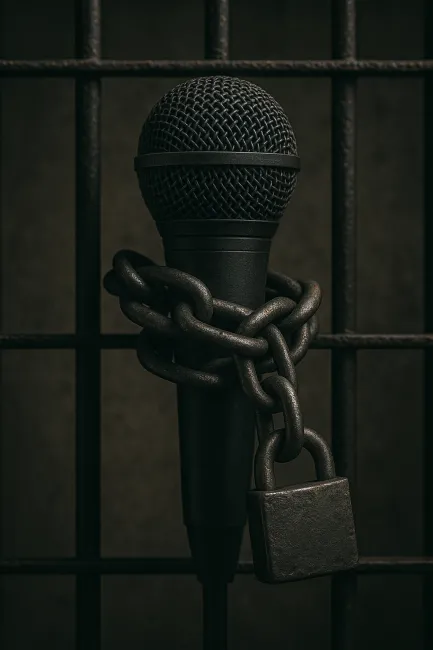
Lucy Connolly’s appeal has been denied. Her 31-month prison sentence, imposed for a single tweet, now stands. The Court of Appeal confirmed the punishment on 20 May 2025, declaring it “proportionate and lawful.”
Let that sink in: Britain has decided that a social media post—written, posted in the heat of the moment, and deleted within hours, justifies nearly three years behind bars.
This isn’t about whether you liked what she said. It’s not about whether her words were offensive, inflammatory, or socially unacceptable. It’s about the fact that she said something, and for that alone, she is in prison.
In a free society, that cannot be allowed to stand.
Yes, there is speech that should concern us. Bomb hoaxes. Direct threats. Sustained harassment. Coordinated calls for violence. These are serious, and when there is genuine intent to cause harm or incite criminal acts, the law should intervene. But that’s not what happened here. Lucy Connolly did not plan an attack, organise a riot, or threaten a specific person. She posted a single angry tweet in reaction to a national tragedy—and she is now in prison.
We are told the law protects freedom of expression. But that freedom is now conditional. Say something unpopular, out of step with the prevailing political or cultural winds, and your liberty is no longer guaranteed. Worse still, we are seeing a justice system that applies these conditions selectively.
We have watched people issue open threats, glorify terrorism, or call for real-world violence, yet walk away with cautions, suspended sentences, or nothing at all. No media circus. No custodial sentence. No example made.
Lucy Connolly, however, has been treated differently. She is in prison not because she was dangerous, but because she was politically inconvenient. The state has made an example of her, not to uphold justice, but to enforce a line.
The message is clear: you may speak freely, so long as you don’t say the wrong thing. You may express outrage, so long as it’s the approved kind. You may use strong language, so long as it’s aimed in the correct direction.
This is not justice. This is control.
And it is not just Lucy Connolly’s freedom that has been taken. It is the principle that protects us all. If a tweet can now result in a prison sentence, then no one who speaks online is safe. All it takes is the wrong phrasing, the wrong subject, or the wrong moment, and you may find yourself facing the full force of a system that no longer tolerates dissent.
This is not about taste. It’s not about tone. It’s not even about the individual. It’s about whether speech is still free in Britain, or whether, like Lucy Connolly, it has already been sentenced.